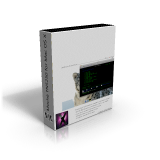Tn5250 For Mac Os X
TN5250 for Mac OS X
May 23, 2020 Free download tn5250 tn5250 for Mac OS X. TN5250 is a terminal emulator which provides access to an AS/400. Mocha TN5250 for Mac OS X makes a crash if you delete font Times.dfont If the font used in our Dialog/menu is deleted or replaced with a bogus font, our tn5250 program will make a crash. The font must not be removed from /System/Library/Fonts/Times.dfont How to delete the configuration for Mocha TNxxxx for Mac OS X. Unix-like Command-line interface. Linux console – implements a large subset of the VT102 and ECMA-48/ISO 6429/ANSI X3.64 escape sequences.; The following terminal emulators run inside of other terminals, utilizing libraries such as Curses and Termcap:. GNU Screen – Terminal multiplexer with VT100/ANSI terminal emulation; Minicom – text-based modem control and terminal emulation. Sudo pkgutil -forget dk.mochasoft.tn5250. If this fails, try cd /Library/Receipts sudo rm -r tn5250install.pkg Hereafter install the older version. How to install on MacOS (Mountain Lion or better): Turn on in system preferences - Security - Allow application download from 'Mac App Store and identified developers'. Jun 19, 2020 TN5250 is a terminal emulator which provides access to an AS/400. The AS/400 - also called the 'IBM iSeries,' is a midrange server from IBM, designed for the business world.
Mocha TN5250 makes it possible to connect to an AS/400 with the TN5250 protocol and emulate a 5250 Display StationFeatures:
- - Supports all standard 5250 emulation features
- - Mac OS X application , for Snow Leopard and Lion (10.6.x - 10.7.x)
- - Alternate screen size (24x80 or 27x132)
- - 128 Bit SSL (Secure Socket Layer)
- - Small and fast.
- - User defined functions keys
- - Support for Euro sign and double keys as é è
- - Mouse wheel support (page up/down)
- - Device name support
- - Hotspots (Fx and Fxx text on the 5250 screen can be used as buttons)
- - Hardcopy of screen
- - Many trim parameters
- - Online Help
- - Free upgrades to new versions of the product

If problems with keyboard (F9,F10 and F11), see our FAQ or use alt+f9, alt+f10.. (or fn + f1 - f12)
This is a list of notable terminal emulators. Most used terminal emulators on Linux and Unix-like systems are GNOME Terminal on GNOME and GTK-based environments, Konsole on KDE, and xfce4-terminal on Xfce as well as xterm.
Character-oriented terminal emulators[edit]
Unix-like[edit]
Command-line interface[edit]
- Linux console – implements a large subset of the VT102 and ECMA-48/ISO 6429/ANSI X3.64 escape sequences.
The following terminal emulators run inside of other terminals, utilizing libraries such as Curses and Termcap: Adobe flash update for 10.3.1 macos high sierra 10.
- GNU Screen – Terminal multiplexer with VT100/ANSI terminal emulation
- Minicom – text-based modem control and terminal emulation program for Unix-like operating systems
- tmux – Terminal multiplexer with a feature set similar to GNU Screen
Graphical[edit]
X11 and Wayland[edit]
Terminal emulators used in combination with X Window System and Wayland
- xterm – standard terminal for X11
- GNOME Terminal – default terminal for GNOME with native Wayland support
- guake – drop-down terminal for GNOME
- konsole – default terminal for KDE
- xfce4-terminal – default terminal for Xfce with drop-down support
- Terminator – written in Java with many novel or experimental features
- Terminology[1] – enhanced terminal supportive of multimedia and text manipulation for X11 and Linux framebuffer
- Tilda – a drop-down terminal
- Yakuake – (Yet Another Kuake) a drop-down terminal for KDE
- rxvt – lightweight terminal emulator
- aterm (from rxvt 2.4.8) created for use with the AfterStep window manager (no longer maintained)
- Eterm (from rxvt 2.21) created for use with Enlightenment
- mrxvt (from rxvt 2.7.11) created for multiple tabs and additional features (latest version released in 2008-09-10)
- urxvt (from rxvt 2.7.11) created to support Unicode, also known as rxvt-unicode
- Wterm – created for NeXTSTEP style window managers such as Window Maker
macOS[edit]
Terminal emulators used on macOS
- Terminal – default macOS terminal
- iTerm2 – open-source terminal specifically for macOS
- xterm – default terminal when X11.app starts
- ZTerm – serial line terminal
Apple Classic Mac OS[edit]
Microsoft Windows[edit]
- ConEmu – local terminal window that can host console application developed either for WinAPI (cmd, powershell, far) or Unix PTY (cygwin, msys, wsl bash)
- HyperACCESS (commercial) and HyperTerminal (included free with Windows XP and earlier, but not included with Windows Vista and later)
- mintty – Cygwin terminal
- Windows Console – Windows command line terminal
Tn5250 Mac
Microsoft MS-DOS[edit]
- Qmodem and Qmodem Pro
IBM OS/2[edit]
- ZOC – discontinued support for OS/2
Commodore Amiga[edit]
Commodore 64[edit]
Block-oriented terminal emulators[edit]
Emulators for block-oriented terminals, primarily IBM 3270, but also IBM 5250 and other non-IBM terminals.
Coax/Twinax connected[edit]
These terminal emulators are used to replace terminals attached to a host or terminal controller via a coaxial cable (coax) or twinaxial cabling (twinax). They require that the computer on which they run have a hardware adapter to support such an attachment.
- RUMBA 3270 and 5250
tn3270/tn5250[edit]

These terminal emulators connect to a host using the tn3270 or tn5250 protocols, which run over a Transmission Control Protocol (TCP) connection.
- x3270 – IBM 3270 emulator for X11 and most Unix-like systems[2]
- c3270 – IBM 3270 emulator for running inside a vt100/curses emulator for most Unix-like systems[2]
See also[edit]
References[edit]
- ^Schroder, Carla (November 16, 2017). '5 Coolest Linux Terminal Emulators'. Linux.com.
- ^ ab'x3270'.
External links[edit]
- The Grumpy Editor's guide to terminal emulators, 2004
- Comprehensive Linux Terminal Performance Comparison, 2007